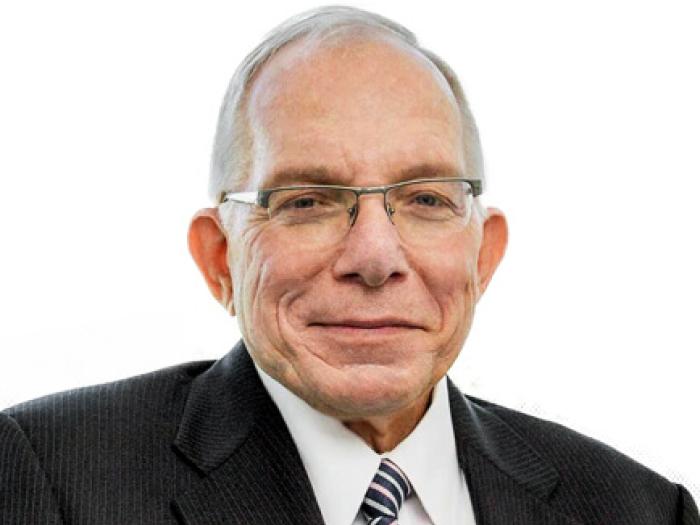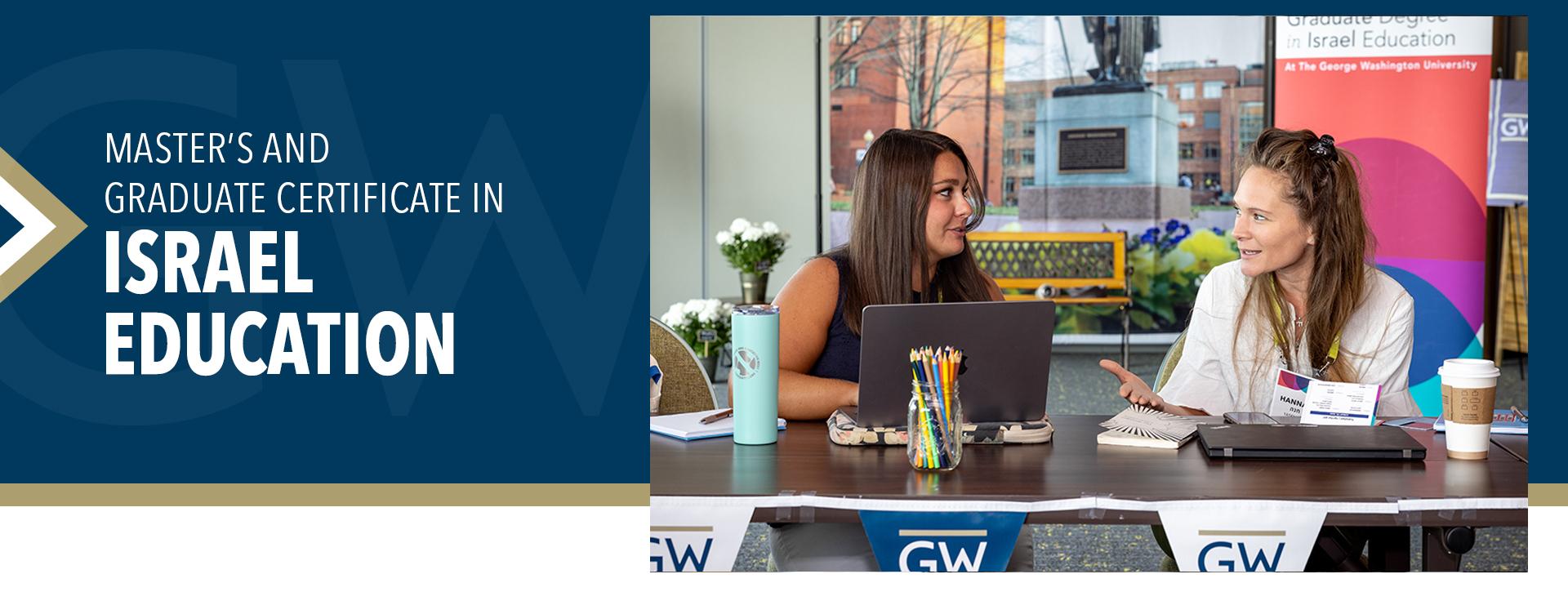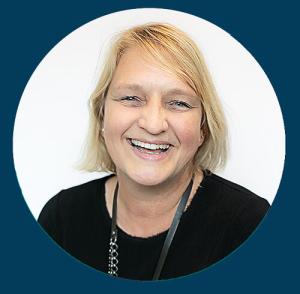Master's and Graduate Certificate in Israel Education
Advancing Excellence in Israel Education
The profession of Israel education combines several diverse fields, among them Israel studies, philosophy of education, curriculum development and pedagogy, educational leadership, and theories and practices of working with people.
Created through a partnership between The iCenter and the George Washington University, with generous support from the Marcus Foundation, our Israel Education program is the first of its kind to be offered at a major university in the U.S. It brings together cohorts of Jewish educators, leaders and changemakers to learn new methods and techniques for Israel education.
Program participants earn a graduate certificate following the successful completion of 15 credits of coursework in Year 1. Academically eligible students may advance to the master's degree, an additional 15 credits of coursework in Year 2.
The program incorporates a focus on experiential education in informal educational venues, which are a growing niche within the Jewish education enterprise, as well as formal educational activities.
Accessible + Flexible
- Generous merit scholarships are offered for all students.
- The hybrid learning structure is designed to accommodate working professionals.
Commitment to Collaborative Learning
The cohort model allows peers to collaborate, learn from each other, and develop a professional network. We believe students are active participants in their own learning, and through that, can become partners in forging new directions in the field.
Renowned Faculty
Learn with and from faculty members who are active and experienced working professionals with real-world insights into the field of Israel education.
The GW Advantage
Our Israel Education program offers a unique model of advanced professional studies for this emerging and exciting field, featuring an intensive learning experience in Israel, vision-based learning, and individualized mentoring.
Outside of GW’s formal study of Jewish history, politics and culture, the university has a strong Jewish community among its student population. With approximately 20% of students identifying as Jewish, supporting Jewish education and student life is a priority at GW.
Degree Awarded:
Master of Arts in Education and Human Development in the Field of Israel Education
-and/or-
Graduate Certificate in Israel Education
Department:
Educational Leadership
Course Delivery:
Hybrid
Program Entry:
Fall
- Our Mission
The program's mission is to develop a new cadre of significant educators who can help shape the historic relationship between Israel and American Jewry into the twenty-first century.
- Graduate Certificate Curriculum
The following requirements must be fulfilled: 15 credits in required courses. (The program will run over the course of one academic year, including a fall, spring, and summer session.)
Code Title Required Three online courses (Fall and Spring): EDUC 6803 Introduction to Experiential Jewish Education EDUC 6811 Foundations of Contemporary Israel EDUC 6812 American Jews and Modern Israel Two three-day intensive face-to-face seminars on site (Fall): EDUC 6810 Paideia and Jewish Education An 8-day learning experience in Israel (Summer): EDUC 6813 The Israel Educational Experience - Master's Degree Curriculum
The following requirements must be fulfilled: 30 credits, including 24 credits in required courses and 6 credits in elective courses.
Code Title Required EDUC 6803 - online Introduction to Experiential Jewish Education (included in grad cert.) EDUC 6808 Conflict Education EDUC 6809 - online Multidisciplinary Research and Practice in Israel Education EDUC 6810 Paideia and Jewish Education; (included in grad cert.) EDUC 6811 - online Foundations of Contemporary Israel (included in grad cert.) EDUC 6812 American Jews and Modern Israel (included in grad cert.) EDUC 6813 The Israel Educational Experience (included in grad cert.) EDUC 6814 - online Teaching and Learning Hebrew Language EDUC 6815 - 3-day on-site seminar (Spring) Culturalism and Israel Education EDUC 6816 - online Professional Portfolio in Israel Education Electives 3-6 credits of elective courses, selected in consultation with advisor* *Non native Hebrew speakers will take an assessment upon admission. Students testing below level ג, will enroll in Hebrew for one of their electives. Those ג or above have the option to enroll in Hebrew language.
- Program Outcomes
The learning outcomes and goals of the Israel Education program are:
- Apply vision-based learning concepts to practical educational strategies.
- Critically evaluate existing issues and practices in the field of Israel education.
- Design experiential education programs and activities that emphasize the centrality of Israel to Jewish education, civilization, and life.
- Evaluate the needs and interests of policy makers, philanthropists, professional and lay leadership, and rank and file members of the contemporary Jewish community regarding Jewish education and Jewish life.
- Understand the historical and contemporary politics, culture, and geography of Israel, and apply this knowledge to the development of educational activities.
- Apply the foundational principles, pedagogies and tools of Israel education to formal and informal Jewish educational environments.
Apply Now
Now accepting applications for Cohort 9
Application Process:
- Step 1: Complete the initial online application by March 29, 2026.
- Step 2: Selected applicants will receive an invitation to interview with program faculty. Interview will take place between April 6 - May 8, 2026.
- Step 3: Before the interview, candidates must submit the following documents:
- Unofficial undergraduate and graduate (if applicable) transcript(s)
- Professional letter of recommendation
- Step 4: The iCenter admissions committee will recommend select applicants for admission to GW/GSEHD by early June 2026. These applicants will then submit a formal application to GW via the university’s online portal.
- Review our step-by-step guide to applying to GSEHD >
For questions about the application, contact laura![]() theicenter [dot] org (laura[at]theicenter[dot]org).
theicenter [dot] org (laura[at]theicenter[dot]org).
To learn more about the program, GSEHD admission process, and upcoming events, please connect with the GSEHD Admissions Team at education![]() gwu [dot] edu (education[at]gwu[dot]edu) or 202-994-9283.
gwu [dot] edu (education[at]gwu[dot]edu) or 202-994-9283.
To be considered for admission, applicants must submit the online application form as well as the following required supporting documents. There is no application fee.
- Prerequisite: Bachelor's Degree
- Resume
- Transcripts from all previously attended colleges or universities
- Statement of Purpose (250-500 words)
- Two Letters of Recommendation
*Additional application requirements may exist for international applicants.
Tuition & Financial Aid
Thanks to generous support from the Marcus Foundation, all students accepted into the program receive significant scholarship benefits.
- Year One (Grad Cert.)
Each student receives significant scholarship funds and is only responsible for $5,000, with the hope that students’ employers will assist in the funding of their participation.
- Year Two (Master's)
Each student receives significant scholarship funds and is responsible for only $7,000, with the hope that students’ employers will assist in the funding of their participation.
Graduate tuition is charged per credit hour, unless otherwise noted. Rates vary by program and location.
The tuition rate* for the Israel Education program is $1,265 per credit hour.
The graduate certificate requires 15 credits, and the master's degree requires an additional 15 credits (30 credits total).
Please note: Additional fees may apply for international students, late fees, etc. Current tuition rates may be updated during the year.
*Summer 2025, Fall 2025 and Spring 2026
Scholarships are available to eligible admitted students. Review eligibility requirements and learn more about funding your education >
The Master's Degree program helped me build competence and confidence in my personal pedagogy and knowledge of Israel and Jewish education. As a result, I find myself thinking more critically about how theories of education play into my profession.
Bekkah Gold
-Cohort 5 RootOne
Not only did we talk about experiential education, but that's also how we learned. We created personal and professional connections. The faculty met our individual needs and, together, this made the learning meaningful and successful.
Jason Steckler
-Cohort 3 Onward Israel
The degree program gave me a superstructure, an organizational path, to approach the education that I do – and a new pedagogical infrastructure for everything my team does around Israel education, always placing the learner at the center.
Tina Malka
-Cohort 1 Hillel International
The Graduate Degree program gave me the academic foundation and tools - the technical language and pedagogical theories - to advance as a professional committed to raising the expectations and experiences of future generations.
Adam Blue
-Cohort 4 StandWithUs
Career Outlook
The field of Israel Education is one of the most important new areas of Jewish professional growth and impact in the 21st century. Our programs are aimed at Jewish educators and communal professionals who want to make Israel education a full-time profession, as well as Jewish professionals (educators, community and organizational leaders, clergy) who want to develop competencies for Israel education.
20% of the incoming (highly selective) Wexner Davidson Fellowship cohort earned their masters degrees in GW's graduate programs in Jewish education: Rachel Sasiene and Or Shemer (Israel Education), and Rebecca Powell (Experiential Jewish Education)
- Israel Education Career Opportunities
-
With a graduate degree in Israel education, you can pursue a variety of career paths related to education, Jewish studies, cultural exchange, and intercultural understanding. Here are some potential career options:
- Israel Educator: You can work as an Israel educator, designing and implementing educational programs that focus on Israel's history, culture, politics, and society. This role can be found in Jewish day schools, community centers, Jewish organizations, or educational institutions.
- Curriculum Developer: With your expertise in Israel education, you can develop curriculum materials and resources for schools, organizations, and institutions that aim to teach about Israel. This can involve creating lesson plans, educational activities, and multimedia content.
- Jewish Community Educator: Many Jewish communities and organizations employ educators who specialize in Israel education to engage community members and foster a connection to Israel. This role may involve organizing events, leading workshops, and developing educational initiatives.
- Israel Experience Coordinator: In universities or organizations that facilitate Israel experience programs, you can work as a coordinator specifically focusing on Israel experiences. You would help students with logistics, cultural integration, and educational programming during their time in Israel.
- Cultural Exchange Specialist: With a graduate degree in Israel education, you can work as a cultural exchange specialist, promoting mutual understanding and collaboration between Israeli and international communities. This may involve organizing exchange programs, facilitating dialogue, and fostering cross-cultural communication.
- Nonprofit Work: Many nonprofit organizations focus on Israel-related initiatives and projects. You can work for these organizations in various capacities, such as program management, community engagement, advocacy, or fundraising.
- Research and Policy Analysis: With advanced knowledge in Israel education, you can pursue research positions in educational institutions, think tanks, or policy organizations. You can contribute to research projects, conduct evaluations, and provide recommendations for educational policies related to Israel.
- Education Consultant: As an education consultant, you can offer your expertise to schools, organizations, and institutions seeking guidance on Israel education. You can provide advice, develop strategies, and assist in the implementation of Israel-focused educational initiatives.
- Potential Employment Settings
-
A sampling of the leading agencies and educational settings in which our students currently work include:
- Authentic Israel
- Camps Massad, Solelim, and Yavneh
- Campus Hillels
- Embassy of Israel
- Hand in Hand
- Hillel International
- Israel Policy Forum, The Washington Institute for Near East Policy
- Israeli Ministry of Defense
- Jewish Community Relations Council
- Maccabi USA
- Maimonides Foundation
- Onward Israel
- Rockdale Temple, Temple Beth Abraham, Temple Ohev Shalom
- Rodeph Shalom School
- Samis Foundation
- Schusterman Family Foundation
- Shorashim (Birthright Israel)
- Stand With Us
- The iCenter
- The Israeli Ministry of Education
- The Jewish Agency, The Jewish Federation
- Universidad Hebraica
- Woodstock Jewish Congregation
- World Zionist Organization
Program Faculty



Program Director, Israel Education; Research Associate Professor, Experiential Jewish Education









